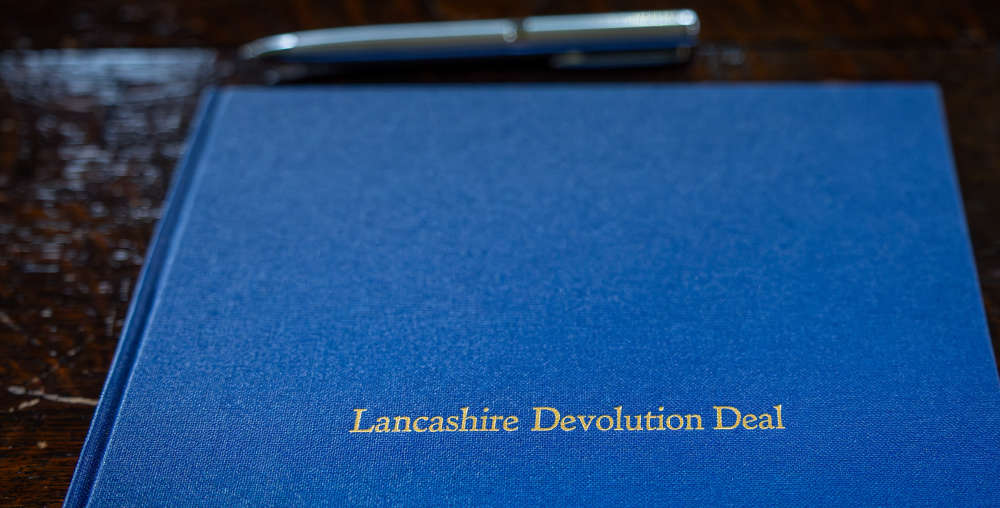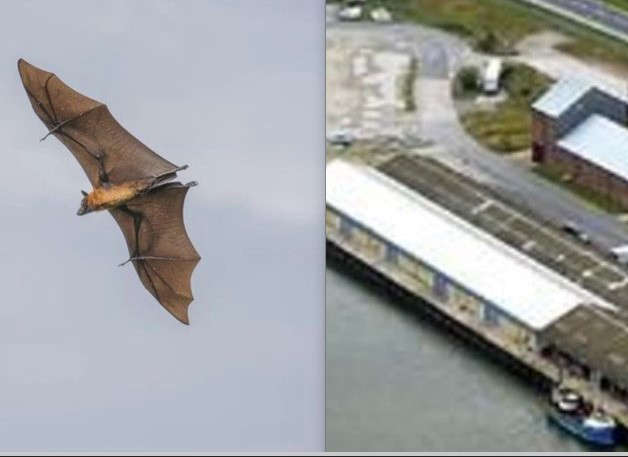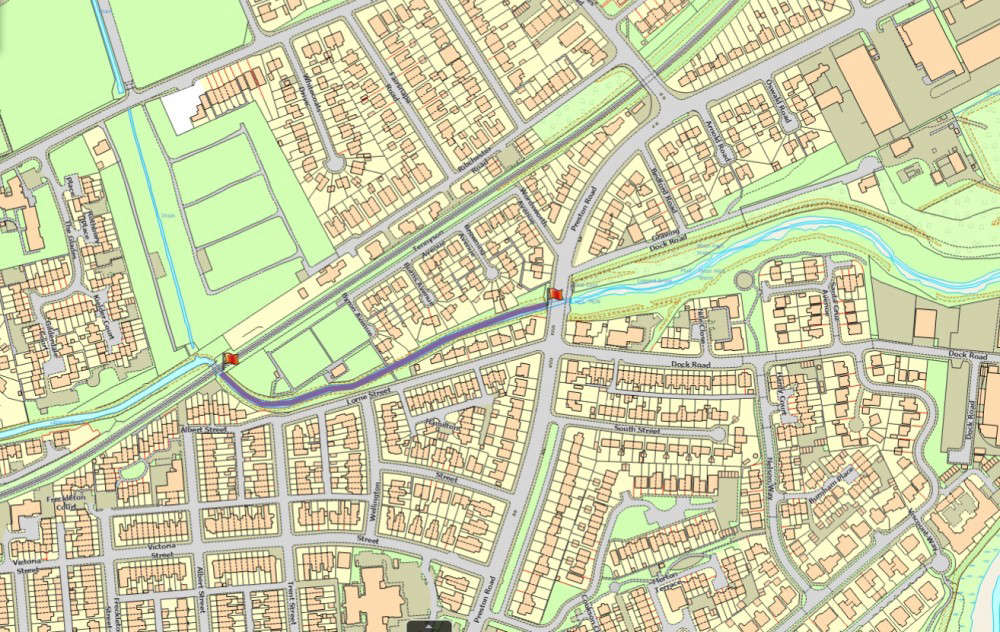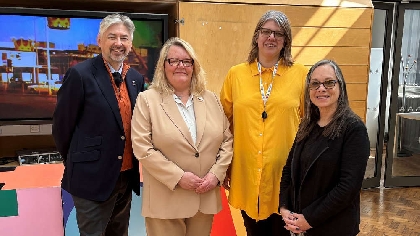
A new day has dawned over Lancashire after the county was finally handed the devolved powers it has sought for so long – meaning more decisions will soon be taken at a local level.
It comes after the Labour government announced that it was going to implement – rather than reinvent – the devolution deal provisionally struck between Lancashire and the previous Conservative administration late last year.
That agreement – signed by the leaders of Lancashire County Council, Blackpool Council and Blackburn with Darwen Council – was put on ice after failing to make it onto the statute books before the snap general election.
Crucially, it did not involve the creation of a directly elected mayor for Lancashire – akin to Greater Manchester’s Andy Burnham – the prospect of which has proved perennially controversial in some corners of the county and has played a large part in it taking eight years for Lancashire to put pen paper on a deal.
However, the Local Democracy Reporting Service (LDRS) has seen a letter from local government and English devolution minister Jim McMahon which requests Lancashire brings forward proposals for “deeper and wider devolution” by this time next year – strongly suggesting that the arrangements now being put in place have a short shelf life.
While there is no explicit reference in that correspondence to the creation of a mayor within any particular timeframe, the sole remaining step above Lancashire’s current ‘level 2’ deal on the devolution ladder comes with an elected mayor as a prerequisite.
The changing of the political guard at Westminster after the general election sparked a sustained attempt by Lancashire’s Labour MPs and all nine of the county’s Labour or coalition-run district authorities to have the provisional deal ripped up and renegotiated.
Their aim was to secure more control and cash for the county than it will get under the present arrangement, which will see Lancashire handed more power over policy areas including adult education, regeneration and transport, along with a one-off £20m fund to help boost “innovation-led growth”.
However, speaking to the LDRS, the trio of leaders who signed that deal at a special ceremony at Lancaster Castle last November were keen to champion the impact they say their agreement will have – and the importance of it being implemented sooner rather than later.
Lancashire County Council’s Conservative leader Phillippa Williamson said she and her Labour counterparts at Blackpool and Blackburn with Darwen councils had “never wavered [in our belief] this is the best deal that is achievable”.
“To do anything else would be ridiculous…and set us back a long time I think we expected to have a sensible conversation [with the government] about it all, which was what we did – and we had all the evidence to be able to convince them.
“We know our county is already a brilliant place to live and work, but we also know that we can be even better if we are able to make more decisions locally, this is just the start and we are committed to exploring how we can go further.
“What’s not to like about bringing decision-making and powers that will make things better locally into our hands, to be able to make those decisions ourselves, rather than have them done at Westminster?” County Cllr Williamson asked.
The three signatories to the deal met with Jim McMahon a fortnight ago and Blackpool Council leader Lynn Williams says she is pleased that outcome has been a decision which allows Lancashire “just be able to get on with this”.
“It is really important that decisions that affect our residents here in Lancashire are made at a local level.
“We don’t have to sell it to business – they’re already on board [and just wonder why] it has taken so long,” Cllr Williams added.
Meanwhile, Phil Riley, who leads Blackburn with Darwen Council, says it would have been a “backwards” step to return to the drawing board and rethink the deal in its entirety. To those district leaders who are unhappy with the scope of the agreement and what it will bring to Lancashire, he says:
“You cannot compare where we are [with] where [Greater] Manchester now are. The more sensible comparison is…with where Manchester began – and [that] is probably not [much] different [to] where Lancashire is now beginning.
“We have to start to be in a situation where we can compete with all the other mayoral authorities. If people want to see an example of where we are aiming to get to, then Manchester is that example…of a place that has been absolutely transformed in the last 10 to 15 years,” Cllr Riley said.
The government said in announcing its decision to push the current proposal over the line, that it is encouraging Lancashire to move towards what it describes as the “gold standard” of mayoral devolution at a later date.
It has been seized upon by those both for and against the idea as evidence of the government’s ultimate ambition for the county.
After the deputy prime minister and local government secretary Angela Rayner put out a call to local leaders across England asking them for proposals that would pave the way for a devolution revolution, it looked like those agitating for a deeper – and, as they see it, stronger – deal for Lancashire were poised to win the day.
However, the three local leaders who signed the deal – along with Lancashire’s three Conservative-controlled districts – pushed for the provisional agreement to be honoured first before any attempts were made to change its terms.
The government has now signed off on the deal currently on the table, meaning a new combined county authority (CCA) will be established to oversee Lancashire’s additional responsibilities, subject to the set-up being approved by Parliament and given final approval by the local authorities that will form it: the county council and Blackpool and Blackburn with Darwen councils. There will be no change to the operation of any of those individual authorities, nor the dozen districts.
The LDRS understands the CCA could hold its inaugural meeting as soon as January.
The moment would mark the end of what would, by then, be almost nine years of tortuous – and often torturous – negotiations about how devolution could best be brought to the county.
Lancashire’s 15 council leaders have more often than not failed to agree amongst themselves on the shape of any deal – and that is before the ever-shifting devolution demands of successive governments, whether in relation to a mayor or the streamlining of the local authority map, have been factored in.
Those rows have raged while Lancashire has become something of an island in the North of England – left without a deal long after most of its nearest neighbours in Greater Manchester and the Liverpool City Region had started to feel the benefit of more local decision-making.
Notwithstanding the now imminent implementation of the agreement signed last year, Lancashire is unlikely to have seen its last political wrangles over devolution. The deal may finally be done, but differing political opinions mean the debate is far from over.
THE FUTURE COMES FAST
Into that mix comes Jim McMahon’s letter to the three signatory authorities to the deal, in which he welcomed their “assurances” that they see the agreement as being the “first step in Lancashire’s journey on devolution”.
He added: “Building on the progress secured through this agreement I look forward to continuing to work with you to explore all governance models that reflect the geography, economy and political landscape of Lancashire…with proposals from yourselves for deeper and wider devolution coming forward by autumn 2025.”
Asked whether doing a potentially easier deal now simply meant having to face familiar barriers to a more significant agreement later, Cllr Williams suggested that the hoped-for successes of the soon-to-be-implemented arrangement would be the best advert for further Lancashire devolution in future.
“Everyone’s going to want to get on that [devolution] bus when they know if it’s going to a really good place – and that’s what we need to work and focus on now,” she said.
County Cllr Williamson added: “We want to deliver this deal and then deliver future deals, which will bring even more powers and even more funding and…opportunities.”
Cllr Riley was even more explicit, telling the LDRS that as the current agreement was “not the limit to our ambitions”, the three authorities would “collectively do whatever we need to do” to build upon it.
“If that then means that it has to be a mayor, then that’s what it will be,” he said.
‘THIS IS JUST THE START’
South Ribble’s Labour MP Paul Foster – one of the Lancashire parliamentarians who has spent the summer pushing for a rethink of the current devolution deal – says he has been persuaded that implementing the provisional agreement is a “stepping stone…to getting the mayor we need”.
Telling the LDRS that that moment could come as soon as the summer of 2026 he said: “[After] discussions with government and Jim McMahon directly – and other local authorities within Lancashire and other members of parliament – this is the most effective, efficient way of getting us to where we need to get to.
“There isn’t enough parliamentary time to change [the deal] now – and that would be counterproductive,” said Mr. Foster, who was leader of South Ribble Borough Council until winning his seat in Westminster in July.
WHAT WILL LANCASHIRE GET FROM DEVOLUTION…
The deal includes:
***Control over the adult education budget for the county from 2026/27 and new powers to better shape local skills provision to ensure that it meets the needs of the local economy.
***Up to £20 million capital funding to support “innovation-led growth”, including by maximising the benefits of the forthcoming arrival of the National Cyber Force headquarters in Samlesbury and the push towards a net-zero carbon economy.
***Compulsory purchase powers to acquire land that will be used to help drive the regeneration of the area and build more affordable homes.
***New powers to improve and better integrate local transport – including the ability to introduce bus franchising, subject to separate approval from the government. The new combined county authority would also have responsibility for an area-wide local transport plan.
***Potential for closer partnership working with government bodies to strengthen the local visitor and tourist economy.
…AND WHAT DIFFERENCE WILL IT MAKE?
For County Cllr Williamson, the most immediate benefit residents will notice is a revolution in the adult education opportunities on offer to those aged 19 and above.
“It’ll start touching families quite quickly, where people start to have the opportunity to engage in courses that they perhaps wouldn’t have had before.
“[The courses will have] been shaped by close input from businesses around Lancashire – and people will [be able to access them] if they’re coming out of school at that younger age or further through life [when] they want to do different things,” she explained.
That was a sentiment shared by Phil Riley, who said the powers coming Lancashire’s way would help it deal with the “huge issue” the county has with “a lack of skills [and] lack of productivity”.
“We just believe absolutely profoundly that we are in a better position to deal with those really significant social issues here than they are doing it on our behalf in London,” Cllr Riley said.
DONE DEAL
Angela Rayner said of the long-awaited confirmation that Lancashire would be getting a devolution deal: “‘I’m delighted that we’ve been able to mark another moment in Lancashire’s rich history by agreeing the first steps of its devolution journey.
“This agreement will empower local leaders to make key decisions locally, and ensure they have a say on how to shape the future of their area instead of having it imposed on them from Westminster.
“We want to work closely with them to unlock this area’s untapped potential, and keep the red rose of Lancashire blooming proudly.”



 Only Fools & Horses musical to continue after opening night abandoned following medical incident
Only Fools & Horses musical to continue after opening night abandoned following medical incident
 Decision made on demolition of old Fleetwood docks buildings after roosting bats report
Decision made on demolition of old Fleetwood docks buildings after roosting bats report
 New Business Centre named after influential 1930s architect
New Business Centre named after influential 1930s architect
 Liggard Brook improvement works to begin
Liggard Brook improvement works to begin
 Road closures for Blackpool Marathon and Half Marathon
Road closures for Blackpool Marathon and Half Marathon
 Showtown History Centre re-opened
Showtown History Centre re-opened
 Concern growing for missing Fleetwood man
Concern growing for missing Fleetwood man
 Teenager arrested after high speed pursuit on M6 and M65
Teenager arrested after high speed pursuit on M6 and M65




